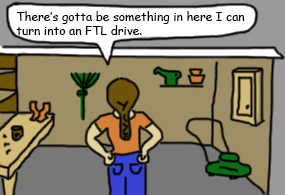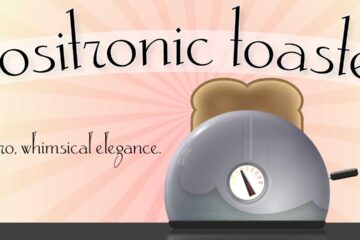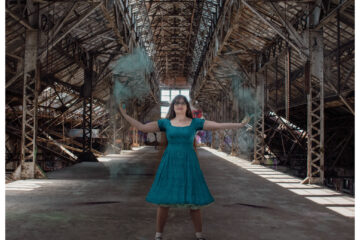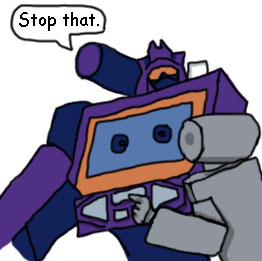The first critiques we receive always stay with us the longest and hold disproportionate position in our imaginations. So it is for me and scientific plausibility.
As a child, writing silly, childish stories, I was drawn to science fiction first. I wanted to write about robots and spaceships and aliens. Almost immediately, the comments I got were not “Sweetie, E’s point the other way,” although I did, in fact, have a bad habit of making E’s and 3’s backwards until well into fourth grade. Nope. I got…
“You know there’s no sound in space, right?”
“That would require FTL travel and that’s not feasible.”
“Telepathy isn’t science fiction, it’s magic.”
and so on, and so on.
I got afraid of writing anything that wasn’t Well Established Cannon. I wrote stories as close to my own culture as possible to avoid questions about why things were different. This resulted in a well-trod future that was… boring.
Recently, my writer’s workshop asked me, “Why don’t you have more fun with this story? Invent some zany, implausible stuff.”
Even now, after a dozen or so pro sales, that scared me.
I know, right? Isn’t “making stuff up” sort of the point of being a writer?
But if I don’t invent it, it isn’t mine, it isn’t my fault if you don’t like it, or if you discover a loophole in it. If someone else wrote it, I can fall back on her work. I don’t have to know everything about all the parts. I don’t have to be smart enough to build a piece of technology down to its component pieces.

Brainy Smurf would have figured it out with a mushroom cap and a flower.
Of course I feel this rage and resentment. I see the mansplainers who told me I couldn’t have FTL gush over Guardians of the Galaxy and I can’t have sound in space but oo they love Star Wars and I realize… they weren’t really telling me what they wanted to read; they were telling me what they were proud to know. They wanted to BE RIGHT. That’s it, that’s all, and I have to let go of any hope of appealing to their faceless masses of fact-beasts.
This conversation was never about improving the story.
This is not to say that good science doesn’t help a story! I am a serious hard SF nerd. I’m that nerd wondering why they didn’t include the projectile arc equations in the fight sequence. Real science, and real life, are messy and unpredictable, and that ultimately makes a more interesting, less ‘well trod’ story.
But I’m so scared to do it. Every piece of real science is a piece of potential error. Was my source correct? Will the technology change quickly after this is published?
Which is why so few of my stories are truly ‘hard’ sf. My science tends to keep to the distance of an article in Wired. All gloss, no guts. (The same articles I read and whine to myself that they didn’t go into enough depth. Oh the irony.)
So I wrote this short short, “This is an Optimistic Science Fiction Story About the Future” and I let myself play free, because it wasn’t a real, serious story – it was a thinkpiece, one of those Meta Stories. I love it. I have jetpacks and flower-roads and the questions I got were whether they would really smell like sunflowers or if the ribbons would get caught in drone blades but I didn’t care because IT WAS NOT THAT KIND OF STORY.
I love how the story came out, and I’m shopping it around now, raw and fresh and unrevised.
So why do I feel like a cheat and failure? I want to write the kind of story that hinges on hard, real science, that presents a speculative, new, imagined technology that ONLY I HAVE EVER COME UP WITH. I want that so bad. And It’s a hard, tall order for anyone to set themselves. But I can’t help what drives me.
Sometimes, what drives us is what scares us. So I’ll keep reading Wired and Science and daydreaming about physics and chemistry explanations that don’t suck, and maybe, someday, I’ll even write it.


